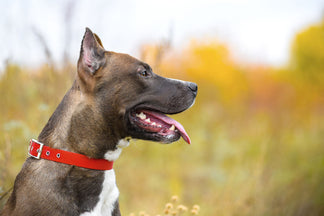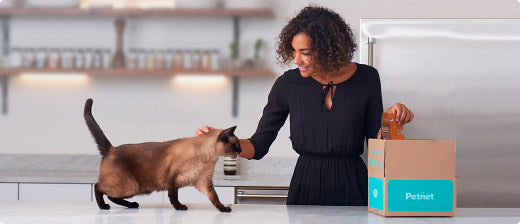The next breed we are featuring in our Getting to Know Your Dog Breed is the Rottweiler. The Rottweiler is part of the Working group of the AKC and ranks #8 in the AKC most popular breed list.
Life expectancy: Rottweilers have a fairly short life expectancy of 9 – 10 years.
Size: They are a medium-large, solidly muscled breed with a typical male weighing between 90 – 135 lbs. They are a strong and confident dog and part of the Working Group of the AKC.
Color: The standard coloring for Rottweilers is black with rust/brown markings on the face, chest, underbelly and paws.
Origins: The Rottweiler originated in Germany where they were bred to herd livestock and drive the cattle to market. Eventually, when cattle herding was outlawed, the Rottweiler’s role evolved to hauling meats and other provisions using a cart. Today’s Rottweiler is heavily used in police, military and customs work.
Personality: Rottie’s are a strongly confident and courageous dog. They can be both aloof and serious or a little goofy when they let their playful side emerge. They are known for their ‘wait and see’ attitudes and are wary of strangers, but affectionate and playful with family. They can be wonderful with children, but their natural tendency to herd may cause issues, so early training on acceptable behavior with children is critical. They have natural tendency for dominance and have developed a reputation as being an overly aggressive dog and therefore require early and extensive socialization and strong leadership. They are not particularly friendly with other dogs.
Health Issues: Rottweilers are one of several breeds predisposed to hip dysplasia, an ailment where the head of the femur does not fit properly into the hip socket. They are also predisposed to Progressive Retinal Antropy (PRA), cataracts and other vision problems. Rottweiler are known to develop heart problems, including cardiomyopathy and subaortic stenosis (SAS), a narrowing of the aorta that carries blood away from the heart. Owners should have their Rottie’s checked for these issues regularly.
Rottweilers are also more likely than other breeds to develop bloat, a condition in which the stomach distends with gas and can twist on itself (called gastric torsion), cutting off blood flow. This is a very dangerous condition that requires immediate veterinary intervention.
Fitness/energy level: Rottweiler’s are working dogs and as such, need a job to make them feel fulfilled. Their energy needs on outlet otherwise they will develop bad habits. They make excellent running or hiking partners and will find herding, nose work or carting lessons enjoyable as those are their natural instincts. Mental exercise such as obedience classes are also beneficial for the intelligent Rottie.
Native foods for the Rottweiler:
- Wild boar
- Duck
- Trout
- Cabbage
Good foods to feed your Rottweiler:
Taste of the Wild™, Southwest Canyon Canine Formula with Wild Boar
Nutram™, Total T23 Grain Free Turkey, Chicken & Duck
Horizon™, Legacy Adult
Fun facts about the Rottweiler:
- The Rottweiler descended from a Roman Mastiff-type dog called the Molossus.
- The Rottweiler is a German breed, so if you want to pronounce it the German way, it’s rott-vile-er. If you’re in the United States, rott-why-ler is acceptable.
- They possess huge appetites and can easily go through a 5lb bag of dog food a week. Watch their intake to prevent overeating and obesity.
Sources:
http://www.therottweilerclub.co.uk/
http://dogtime.com/dog-breeds/rottweiler#
http://www.vetstreet.com/dogs/rottweiler
http://www.yourpurebredpuppy.com/reviews/rottweilers.html




 General
General
 General
General
 General
General
